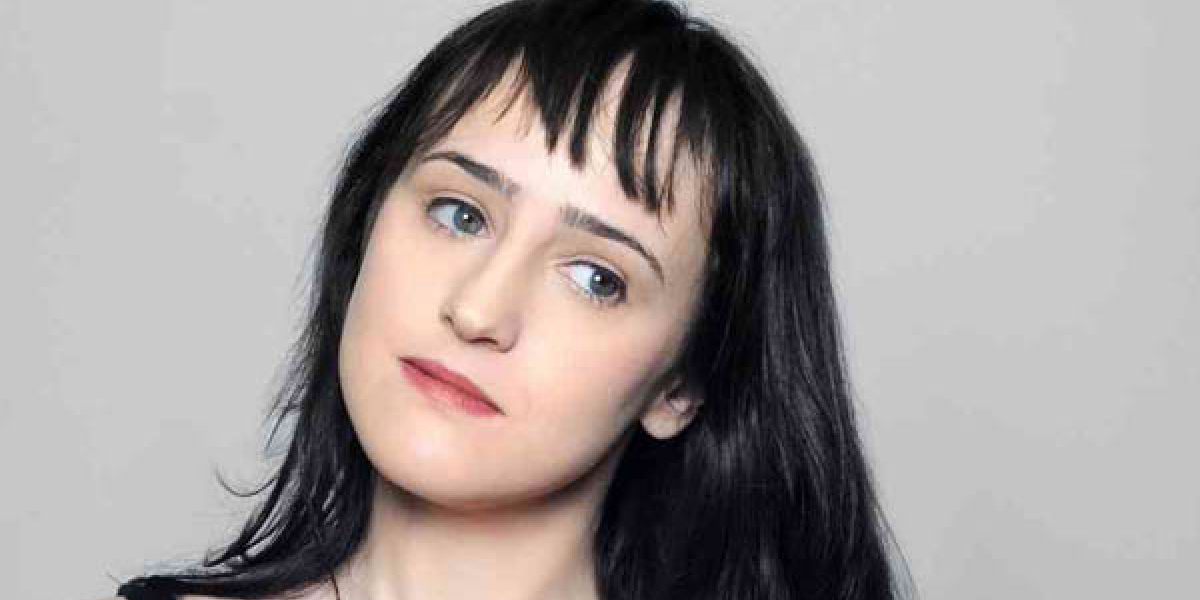Q&A with Mara Wilson, actress turned writer
Remember the young actress from Mrs. Doubtfire and Matilda? Yes, this one:
Well, her name is Mara Wilson, and we're big fans of her work, from her roles in the 90s to her recent online presence. Lately she's been writing up a storm, and we've been following closely.
Turns out, she uses Clue! (We love when this happens.) So we reached out to ask about her upcoming book, being a feminist from Hollywood and interest in personalized health.
First off, congratulations on the Penguin book deal. What can you tell us about this upcoming collection of essays?
Thank you so much! They're stories from my childhood, mostly about being a little too young and a little out of place. There is a lot about how growing up in Hollywood shaped me, but there's also a lot about how my family and my own neuroses did, too. It will be very funny and very sad, and I'm very excited to have _Where Am I Now? _out this fall!
I'm sure you get this question all the time, but why exactly did you leave Hollywood for writing?
It was a very long process – one I've written about at length in my book! I like to think of it as a mutual break-up: Hollywood didn't want me anymore, and I was over it, too. Pursuing an acting career meant being under so much scrutiny and having to relinquish so much control over my life. And I always loved writing. Even before I was acting (and I started when I was five), I always knew I wanted to be a writer. I've been making up stories and retelling anecdotes as long since I could speak, and in the past few years, I've found people who want to listen.

You identify as a feminist. Did this stem from your acting career? Or did it resonate later in life?
It was at least partially inspired by what I experienced in my acting career, yes. There are a lot of talented actors out there, so when you are auditioning, more often than not you are being chosen for a job based on your height, weight, and looks. I knew this from a young age, and it felt more and more degrading as I got older. I wanted to be known for what I did and who I was, not for what I looked like.
My mother had raised me to be independent, telling me I could be anything when I grew up, and as important as that was, it may have led me to believe feminism was something "we don't need anymore." It wasn't until I went to college that I realized how women are still objectified and abused as a matter of course all around the world, and just because I had been fortunate did not mean other women had.
Why is it important to you to speak out about feminist issues?
Anyone who knows me knows that when I'm passionate about something, I will not stop talking about it. And while I'm not a major celebrity, I do have a platform, and I feel obligated to use that platform to advance causes I feel strongly about. Just a few years ago so few successful women wanted to call themselves feminists. Look how many do now!
You're active on Twitter and have a substantial following there. What do you find most rewarding or enjoyable about being on Twitter?
I love it when people like the funny stuff I tweet, but I also love that I get to promote other people's work. I am very fortunate to have a lot of talented friends, and I get to show the world how talented they are. My friends call me the Twitter Fairy Godmother.
What advice do you have for young writers or bloggers?
Writer's block does not exist. You have so many ideas, you just don't trust yourself. Find the weird or important things no one else seems to be talking about, and search after them. I'd also highly recommend writing things out, and looking over and editing them before you put them on the internet.
You mentioned that you did 23andMe and use Clue. What do you find interesting about tracking your health? How has it helped you?
It's partly because I am a big worrier! People have called me a hypochondriac before, and they may not be wrong. I don't like shaking people's hands because they might get me sick, and every time my neighbors burn toast, I worry I'm having a stroke. Knowledge can be a tonic for fear, though, and knowing more has certainly made me feel more in control. Additionally, I'm just very curious about how things work. My father is an engineer – he takes things apart and analyzes them for a living, and in a less literal way, so do I! (I always joke that I'm "half-Jewish, half-engineer.") He definitely passed on whatever gene it is that makes you want to get into minutiae.
Out of curiosity, how did you hear about Clue?
I, like many people, was disappointed to hear that Apple Health did not have a period tracker. I was annoyed both as someone with a uterus, and as someone who's very forgetful. (You can't so much as walk by a doctor's office without someone coming out and asking you when your last period was!) One of my friends mentioned Clue, and I found rave reviews for it on the App Store. It's so smart and so easy to use! I love it.
//
Join the conversation. Follow Mara on Twitter and make sure to pick up her book this fall.
